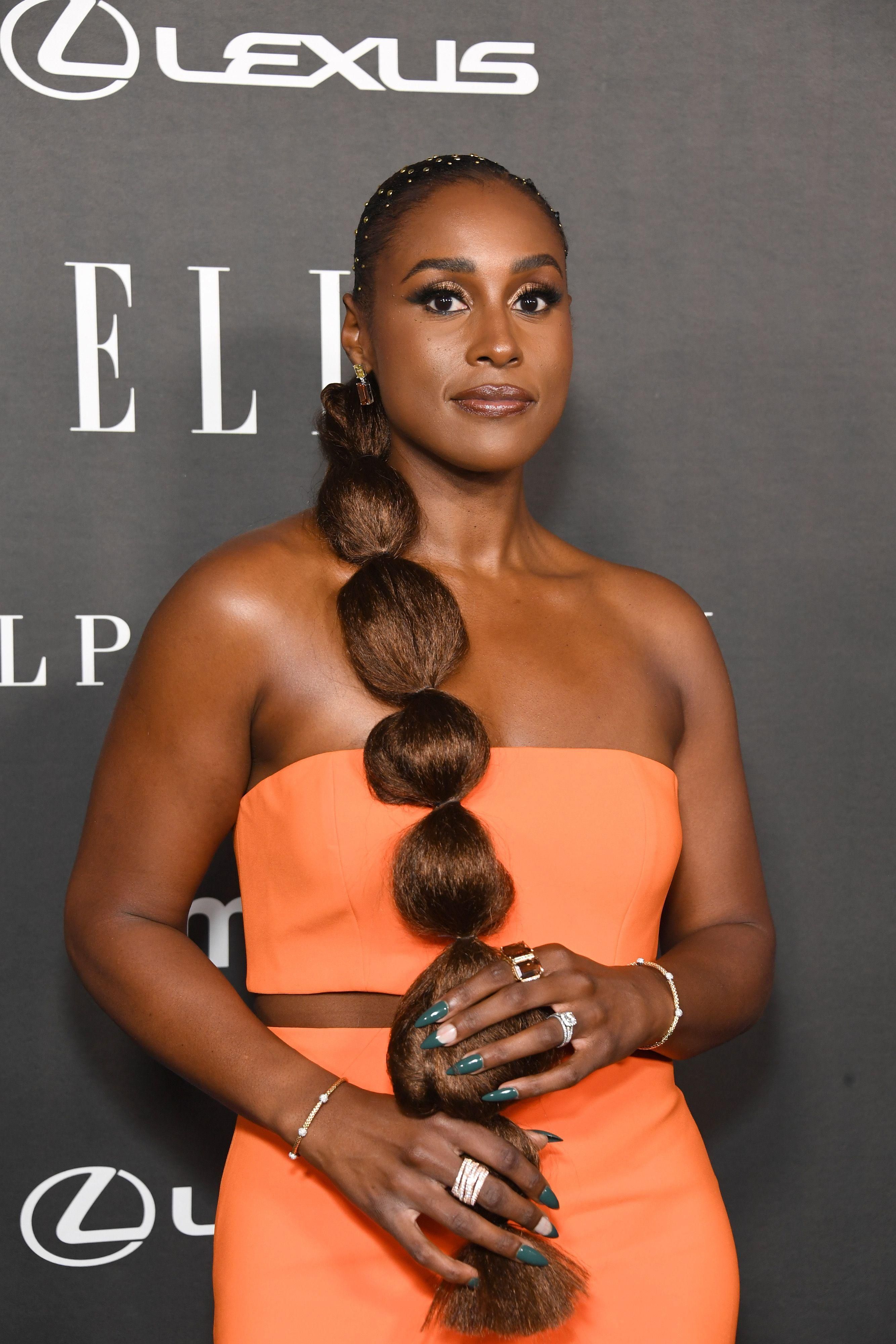Celebrity News
When a woman, particularly a Black woman, speaks up for herself, she is often viewed as “difficult,” “aggressive,” or “angry.” The “angry Black woman” is a trope that has plagued our society for too long and it has had negative effects on our womanhood. Author and professor Deborah Gray White wrote about the trope in her book Ar’n’t I a Woman?: Female Slaves in the Plantation South and shared how it dates back to slavery.
On her podcast Archetypes, Meghan Markle sat down with Issa Rae and they both expressed how they deal with the stereotype, especially in Hollywood. When it comes to the word “particular,” Issa views it as a compliment. “To me, that means I have a sense of what I want," she told Meghan.
The Duchess of Sussex would also consider herself “particular” and doesn’t necessarily see it as a bad thing. However, there have been times when she was hesitant to speak up.
"I think a high tide raises all ships — we're all going to succeed, so let's make sure it's really great because it's a shared success for everybody. But I also know that I will find myself cowering and tiptoeing into a room — I don't know if you ever do that, the thing that I find the most embarrassing — when you're saying a sentence and the intonation goes up like it's a question,” she explained.
“And you're like, 'Oh my God, stop!' Stop whispering and tiptoeing around and say what it is you need,” she continued. “You're allowed to set a boundary, you're allowed to be clear. It does not make you demanding, it does not make you difficult. It makes you clear."
While they both agree that they don’t mind being particular, displaying anger was something Issa had to be cautious about. Issa explained that she "can't lose my cool, I can't do that, especially as a Black woman, but also just even as a public figure now.”
“Because people are looking for ways to justify their perception of you. That doesn't mean I don't get angry. That might mean that I will vent my frustrations to someone that I trust, get it out of my system and then go in fix mode. And I think even personality-wise, I'm always like, I don't want to sit in my anger too long anyway because what does that do? I want to work on fixing something, but I want to be allowed to have that emotion because it's a natural…like, it's an emotion."
Before ending their conversation Meghan praised Issa for how she writes female characters on her shows calling them "nuanced, layered, multifaceted women." And she reflected on her time going on auditions as an actress and the negative stereotypes she saw when reading for Black roles.
"I mean, I remember when I was auditioning, the idea of even Black roles, I remember those casting sheets where the description of the character, she always had to have an edge or an attitude," she recalled.
Let’s make things inbox official! Sign up for the xoNecole newsletter for daily love, wellness, career, and exclusive content delivered straight to your inbox.
Featured image by Jon Kopaloff/WireImage
ALSO ON XONECOLE
